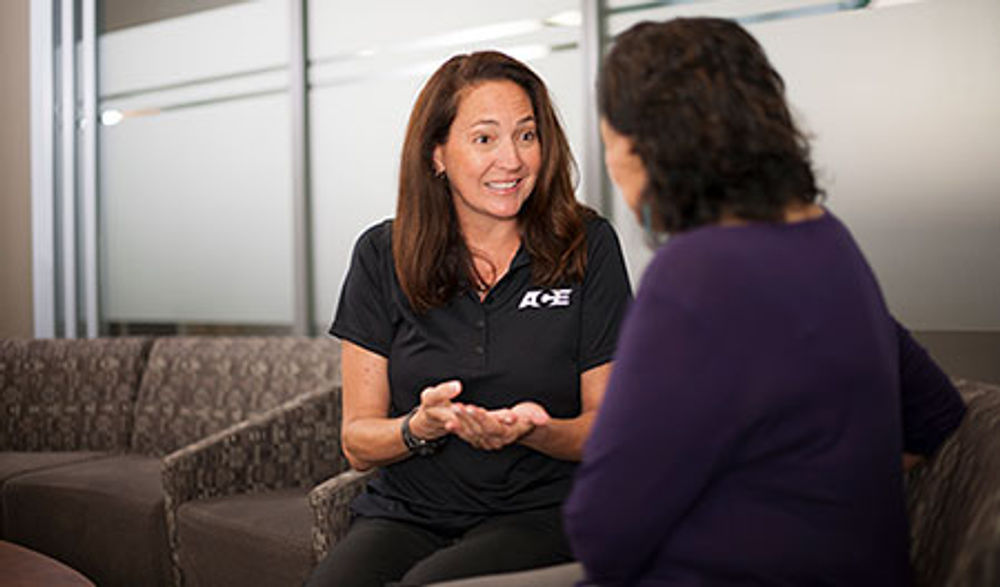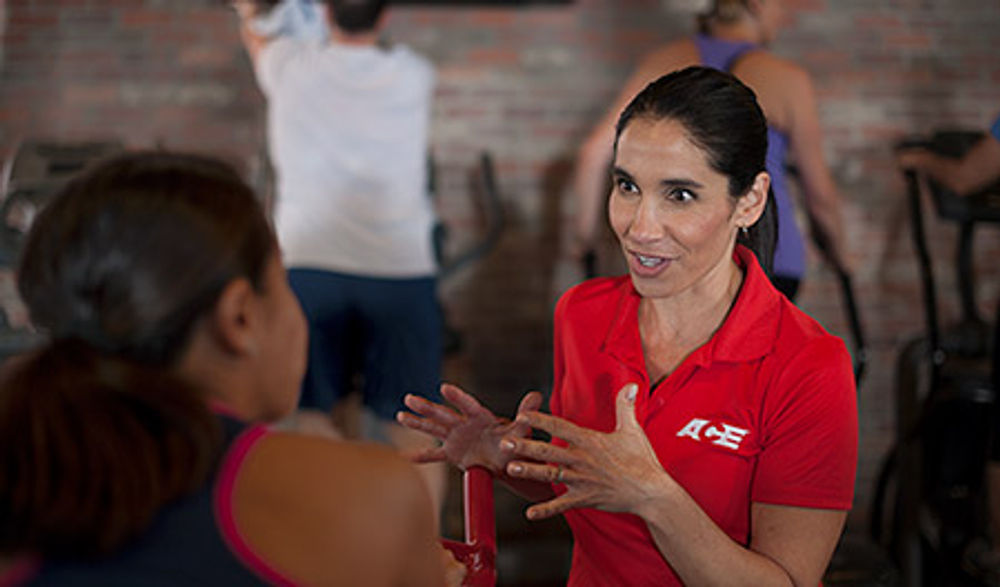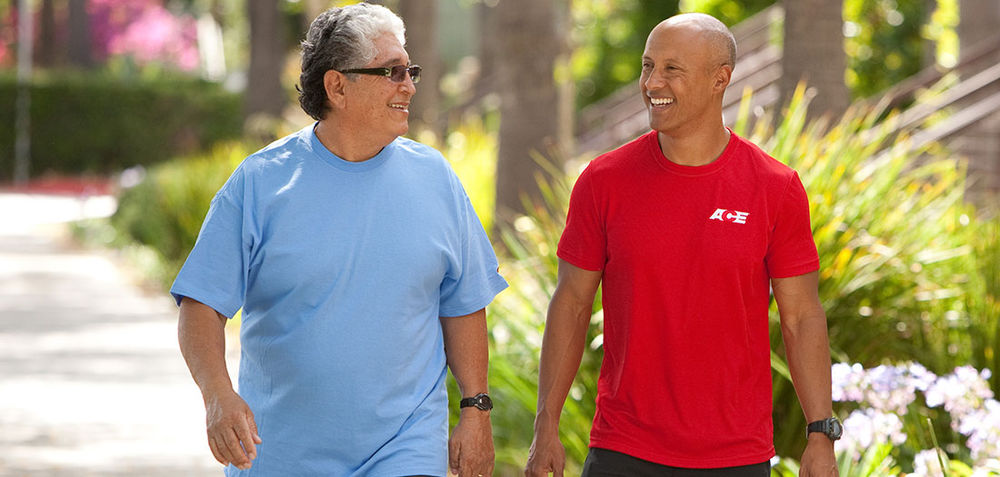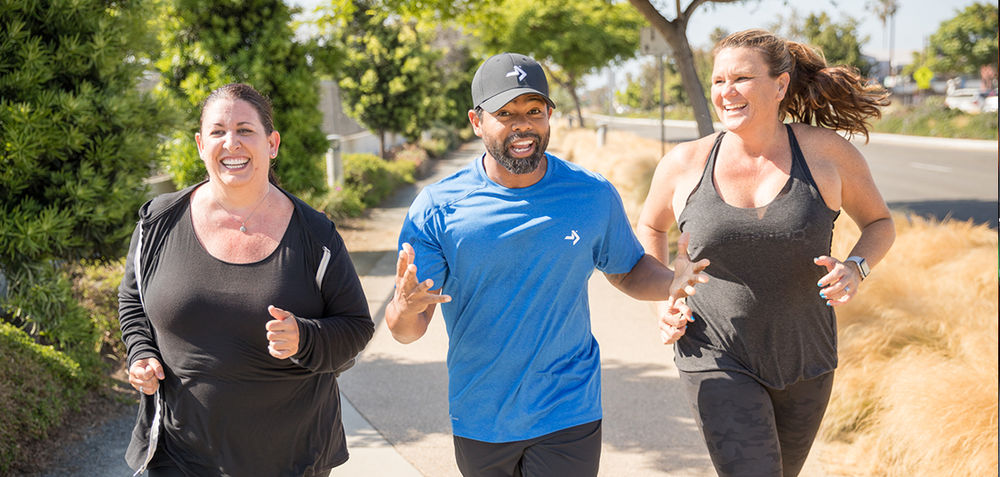

Are Sports Drinks a Smart Choice for Young Athletes?

Are sports drinks the best choice for young athletes? To answer that question, this blog presents youth hydration guidelines, looks at sports drinks vs. water and shares the AAP hydration recommendations. Learn how to keep youth safe during practice and competition.
Read MoreCoaching Behavioral Change: How to Use Habits to Make Behavior Change Stick

A growing body of research confirms that the most effect way to develop healthy lifestyle behaviors is to make them a habit. In this final installment of our series on coaching behavior change, learn the science behind habit formation and how to help your clients make lasting, positive health-behavior changes.
Read MoreCoaching Behavior Change: How Social Determinants Impact the Health of Your Clients

A client’s attitudes and health behaviors are strongly impacted by the conditions in which he or she is born, grows, lives, works and ages. In this latest installment in an ongoing series on coaching behavior change, learn about social determinants and how you can more effectively identify and address the negative factors that may be hindering your client’s efforts to make positive lifestyle changes.
Read MoreCoaching Behavior Change: How to Plan For and Address Relapses

Relapses are a normal part of the behavior-change process. In this latest installment in an ongoing series on coaching behavior change, learn how to help clients recognize triggers for relapse, prepare them for these triggers and practice how to address them, and coach them on how to resume an intended behavior change after relapse occurs.
Read MoreCoaching Behavior Change: Improving Client Outcomes by Cultivating Social Support

What can you do to help a client who has unsupportive family and friends or who does not have a strong network? In this latest installment in an ongoing series on coaching behavior change, learn how to implement a four-step approach to help a client strengthen his or her social supports.
Read MoreCoaching Behavior Change: Dealing With Discord

When discord in a coach-client relationship occurs, it is critical to identify and address it early on so that the quality of the working relationship is not compromised. In this latest installment in an ongoing series on coaching behavior change, learn how to quickly recognize discord and utilize appropriate strategies to effectively handle it before it damages the relationship.
Read MoreCoaching Behavior Change: Why Self-monitoring Is a Key Ingredient in Successful Behavior Change

If you want your clients to be successful with any health-related intervention rooted in behavioral change (and spread the success of your program by word of mouth), a solid plan for self-monitoring must be built in. In this latest installment of an ongoing series on effective methods for coaching behavior change, learn how you can help your clients reach their goals by developing a habit of frequent and continued self-monitoring
Read MoreCoaching Behavior Change: How to Provide Feedback That Grows and Sustains Behavior Change

Providing feedback in a way that is effective and client-centered goes a long way in helping to support clients in continually improving their health, fitness and overall well-being. In this latest installment of an ongoing series on effective methods for coaching behavior change, learn how to maximize your impact by providing effective, client-centered feedback.
Read MoreBehavior Change Coaching for Weight Loss

Having a weight-management coach can make a huge difference in whether a person is able to successfully achieve and maintain weight loss. Part of the reason coaching experiences are often so successful in helping people achieve their weight-management goals is because the most effective weight-management coaches have mastered these five specific skills.
Read MoreCoaching Behavior Change: A Better Way of “Teaching”

Most people already know what they should be doing to be healthy and fit. It is the ability to translate the information into behavior changes that are often missing. In this latest installment of an ongoing series on coaching behavior change, learn why, if we really want to help people make healthful behavior changes, we need to be focusing on “skills training” instead of “teaching” or “health education.”
Read More5 Nutrition Changes Clients Need to Make to Lose Weight and Keep It Off

When it comes to helping clients lose weight, we need to turn to the evidence and learn what science suggests is the most effective and, importantly, safe way to help people achieve and maintain a healthy weight. Here are five nutrition practices that are likely to help guide people toward a healthy and sustainable weight.
Read MoreBehavior Change Toolbox: Celebrate Success

Small celebrations are powerful motivators for behavior change. In this most recent installment of an ongoing series on coaching behavior change, learn how to seamlessly integrate celebration into your clients’ programs in a way that supports their intrinsic motivation, rather than relying on praise, rewards or supports that are externally based.
Read MoreCoaching Behavior Change: Accountability for Change

The most effective behavior-change plans build in accountability for change. In this fifth installment of an ongoing series on coaching behavior change, learn how to help clients develop more “response-ability” through accountability by incorporating four specific components into your behavior-change programs.
Read MoreHealth Coaching: How the Profession, Impact and Opportunities Grew in 2015

Health coaches have never been in greater demand, as more and more people recognize the power of this profession to help people make lasting positive changes in health and well-being. The health-coaching profession is expected to continue to grow in 2016, as several recent studies and reviews have established the benefits of implementing coaching principles to improve health. Here is a small sampling of these findings.
Read MoreA Review of the Healthcare System in 2015

Following the full rollout of the Affordable Care Act in 2014 and healthcare reform, the healthcare system saw some notable trends and signs of progress along with some setbacks in 2015. Here are a few of the highlights with the most relevance for health and fitness professionals.
Read MoreCoaching Behavior Change: Nudge Design

A healthful behavior is more likely to occur when the environment supports it and systems are in place to offer a gentle nudge to make it happen. In this fourth installment of an ongoing series on coaching behavior change, learn how to help clients rely less on their willpower and instead set up their environments so that making the healthy choice becomes the easy choice.
Read MoreHow Integrating Values and Vision into Your Coaching Practice Can Boost Success

Do you know the key values that drive your clients? What about their big dreams and vision for their lives? Understanding your clients’ values is essential to helping them set meaningful goals. Learn how you can help your clients craft personal mission statements and look to the future through the process of visioning, which will help to set the stage for a deeper connection and a greater impact.
Read MoreCoaching Behavior Change Toolbox: The Reflection

Of all of the skills you need to help clients effectively “talk themselves into change,” none is more important than the reflection, which includes repeating back what the client says or may be feeling. In this third installment of an ongoing series on coaching behavior change, learn how to use this powerful communication technique to help clients assess their beliefs and behaviors and come up with their own solutions.
Read MoreCoaching Behavior Change Toolbox: Agenda Mapping

In this second installment of a new series featuring useful tools and information that can improve your communications with clients and help them reach their goals, learn how to use agenda mapping to help clients narrow their focus and establish specific goals.
Read MoreCoaching Behavior Change Toolbox: The Confidence Ruler

As a health and fitness professional, you need the knowledge and skills to help your clients make sustainable changes that improve their overall quality of life. In this first installment of a new series featuring useful tools and information that can improve your communications with clients and help them reach their goals, learn how to use the confidence ruler to help your clients identify their reasons for wanting to make healthy changes.
Read MoreThe Role of a Health Coach and Behavior Change Specialist

The demand for health coaching and behavior-change coaching has never been greater, with research demonstrating the value of coaching in helping people improve health behaviors and, as a result, quality of life. ACE has developed a general consensus and position on what it means to be a certified health coach versus a specialist in behavior change. Here’s what you need to know about this new and evolving field, and how it can enhance and expand your career as a health and fitness professional.
Read MoreMaking the Transition from “Expert”-centered Programs to Client-Centered Programs

As a health and fitness professional, you can maximize client-behavior change through the use of coaching techniques such as open-ended questions and reflective listening to help a client explore his or her own motivations, strengths and benefits from making the change. By doing so, you shift your approach from “expert”-centered programs to client-centered programs, and set the stage for increased client success.
Read More5 Steps to Build Behavior Change Principles Into Your Work

Are you tired of spending inordinate amounts of time developing tailored exercise programs only to have a client drop off after a few sessions? You can increase your impact and efficiency by incorporating a few key behavior-change principles into your personal-training program. Here are five ways to help incorporate behavior-change principles into your daily client interactions.
Read MoreHow to Guide Clients Toward Behavior Change Using the ACE Cycle of Change

Anyone who has tried to help people make a behavioral change knows how difficult it can be, and not everyone is ready to make the changes we think they need to make to improve their health. Learn how to use the ACE Cycle of Change to help you tailor behavior-change interventions to your client’s readiness to change.
Read MoreHow Integrating Values and Vision into Your Coaching Practice Can Boost Success

Do you know the key values that drive your clients? What about their big dreams and vision for their lives? Understanding your clients’ values is essential to helping them set meaningful goals. Learn how you can help your clients craft personal mission statements and look to the future through the process of visioning, which will help to set the stage for a deeper connection and a greater impact.
Read MoreClosing the Gap in Childhood Obesity Forum: A Recap and Call to Action

A large group of individuals and organizations committed to reducing the incidence of childhood obesity recently came together to discuss solutions, particularly for low-income and minority communities where childhood obesity rates are at their highest. ACE’s Dr. Natalie Digate Muth attended this forum and believes that ACE’s network of more than 50,000 ACE Certified Professionals is primed to play a major role in helping to build a healthy environment that reduces the incidence of childhood obe
Read MoreStudy: Are Overweight Children and Teens Destined to Become Overweight Adults?

New research suggests that a child who is overweight by the age of five is highly likely to grow up to be an overweight teenager and adult. Pediatrician and obesity expert Dr. Natalie Digate Muth explains the implications of this new study and offers practical, proven tips for parents who want to help their children eat more healthfully and potentially avoid a lifetime of weight issues.
Read MoreA Call to Lead: Why Fitness Professionals Should Discuss Nutrition With Their Clients

When it comes to offering nutritional advice, what exactly is within the bounds of a fitness professional’s scope of practice? While the laws in each state vary widely, here are some basic guidelines for you to follow, along with some helpful tools and resources to help your clients improve their nutritional status and enjoy the benefits of eating healthfully.
Read MoreGet in the Know
Stay connected with us to get the latest health and fitness news, innovative workouts, healthy recipes and wellness tips.









